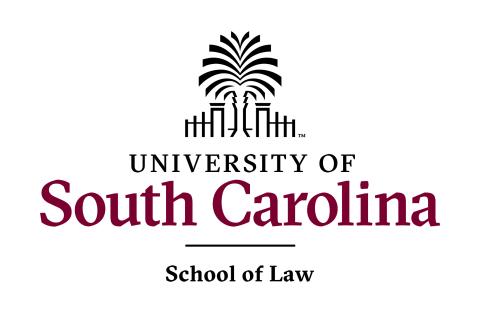University of South Carolina Joseph F. Rice School of Law
The information on this page was provided by the law school.
Official Guide to ABA-Approved JD Programs
Established in 1867, the University of South Carolina Joseph F. Rice School of Law is centrally located in the capitol city of Columbia with an easy drive to the mountains and the coast. As the seat of state government, Columbia is home to the South Carolina Supreme Court, Court of Appeals, and more. South Carolina Law is part of a major research university where law students benefit from rich interdisciplinary opportunities and a lively social and athletic scene.
The JD Program
South Carolina Law has provided outstanding preparation for law students since its founding, offering a full-time-only day program leading to the Juris Doctor degree. Advanced course offerings include corporate and commercial law, tax and estate planning, environmental law, family law, international law, and litigation.
Combination Degrees and Concentrations
By partnering with other graduate programs at the university, the School of Law offers combination J.D. and master’s degrees in Business Administration; International Business Administration; Human Resources; Accountancy; Economics; Public Administration; Criminology and Criminal Justice; Social Work; Earth and Environmental Resources Management; Mass Communications; and Health Services Policy and Management.
Students may also pursue a three-year dual degree, earning a J.D. from South Carolina Law and a Masters of Environmental Law and Policy from Vermont Law School.
Clinics, Special Programs, and Experiential Learning
South Carolina Law recognizes that experiential learning is essential to a well-rounded legal education.
Law students in their third year, or the second semester of their second year, may enroll in the clinical legal education program to develop critical and applied lawyering skills. Clinic offerings include juvenile justice, domestic violence, environmental law, criminal practice, veterans, education rights, medical-legal partnership, and nonprofit organizations. Students may pursue externships in children’s law and administrative law; judicial and legislative internships are also available.
South Carolina Law boasts the first voluntary Pro Bono Program in a U.S. law school. Under the leadership of a full-time director and a student board, this nationally recognized academic-based program allows students to address legal issues such as immigration, disability, appeals, prison correspondence, eviction, discrimination, and more. The Pro Bono Program also directs services provided by the Palmetto LEADER, a mobile legal program targeting rural low-income communities in South Carolina.
The Nelson Mullins Riley & Scarborough Center on Professionalism at the law school sponsors research and service projects to improve access to civil legal assistance simultaneously promoting professionalism, civic leadership, and public service in the practice of law.
The National Advocacy Center, located on the university’s campus and operated by the U.S. Department of Justice, provides intensive training to approximately 12,000 federal prosecutors and attorneys from across the country. South Carolina Law students benefit from an expanded internship program at The NAC and have the opportunity to participate in course offerings.
Faculty
South Carolina Law has more than 50 full-time faculty and numerous expert adjunct professors, including judges and practicing attorneys. South Carolina Law faculty are highly active in their fields of expertise and are frequently sought after to comment on the legal aspects of current events in the media and at conferences and symposia throughout the world.
Student Life
Student Organizations and Involvement
South Carolina Law has more than 30 student organizations, several of which are nationally award winning. Moot Court and Mock Trial teams are sponsored in national, international, the American Bar Association, and various other competitions. For a complete list of student organizations, visit the Student Life section of our website.
Publications include the South Carolina Law Review; ABA Real Property, Trust and Estate Law Journal; Journal of Law and Education; and the South Carolina Journal of International Law and Business.
Facilities
The design of the law school building, finished in 2017, was inspired by 19th century South Carolina architect Robert Mills. It features a spacious interior courtyard, a café, and two courtrooms. The largest is the Karen J. Williams courtroom, a working courtroom that seats 300 people and features the original South Carolina Supreme Court bench from the 1870s.
The School of Law houses a major research library with a collection of more than 500,000 volumes; electronic resources such as LexisNexis, Westlaw, HeinOnline, Bloomberg Law, and SSRN; and the South Carolina Legal History Collection. Study and meeting rooms are available throughout the building, while the Student Commons has additional study space equipped with computers and printers. Law students and faculty also have access to the Thomas Cooper Library that serves the main university campus.
Career Placement and Bar Passage
Tuition and Aid
| Expense | Cost |
|---|---|
| Tuition |
$23,722.00
|
| Expected Cost of Attendance |
$44,458.00
|
While many students depend on federal and private student loans to help finance their legal education, the School of Law offers scholarship assistance based both on merit and financial need. Merit-based scholarships may range from $500 to full tuition. There is no separate application for merit-based scholarships. Applicants who wish to be considered for need-based scholarships or loans should submit the FAFSA.
Please note: The table above reflects the tuition rate and expected cost of attendance for South Carolina residents. Non-resident tuition rates can be found on the law school's website.
Admission Decisions: Beyond the Numbers
The law school seeks to enroll qualified students who will enhance and embrace the school’s rigorous educational environment and, as graduates, make positive societal contributions to South Carolina, the country, and the world.
Although undergraduate GPA and the Law School Admission Test are important, the committee’s decision is influenced by all available information about an applicant including any graduate study, military service, leadership and community service, employment or other life experience, residency, letters of recommendation, and potential for contribution to a diverse educational environment.


